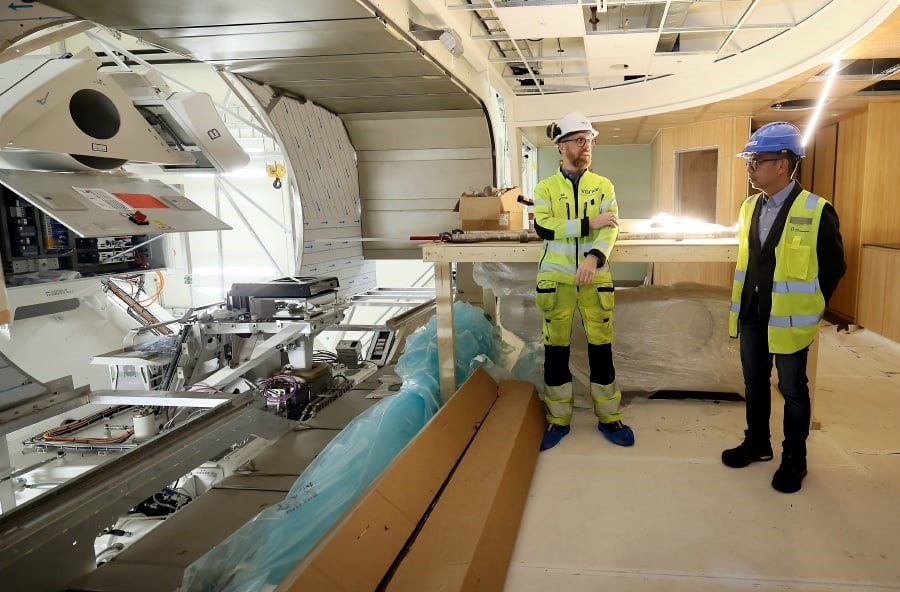The integration of advanced technologies like 5G into healthcare systems has the potential to revolutionise patient treatment and teaching capabilities, according to Malaysia’s Communications Minister Fahmi Fadzil. His recent visit to the Norwegian Radium Hospital, where a dedicated 5G indoor solution was showcased, highlighted the possibilities for innovation in patient care and healthcare solutions.

Fahmi underscored the importance of telecommunication service providers engaging in private-public partnerships to offer new services and solutions, envisioning a future where hospitals can effectively bring healthcare to patients rather than solely relying on traditional models of patient transportation.
The implementation of a dedicated 5G network in hospitals unlocks numerous opportunities, including advancements in the Internet of Things (IoT) and artificial intelligence (AI) solutions. These technologies not only provide a better overview of inpatients but also offer faster access to test results for practitioners.
Additionally, 5G facilitates future healthcare solutions such as remote assisted surgery in teaching hospitals, enhancing the learning experience and capabilities of medical practitioners. Fahmi expressed his intention to discuss these possibilities with the Ministry of Higher Education and the Ministry of Health to explore potential collaborations and initiatives.
Reflecting on his visit to Norway, Fahmi acknowledged the need for further engagement with global partners to harness the potential of emerging technologies. He noted the eye-opening nature of the solutions showcased during his visit and stressed the importance of Malaysia being receptive to such opportunities.
Meanwhile, the Senior Vice President and Deputy Head of Asia for the telecom company agrees about the significance of 5G in the public sector and the opportunities it brings for cost reduction and increased data security in healthcare settings. He emphasised the importance of strong public-private partnerships in realising the full potential of 5G technology, advocating for open dialogue to ensure the right regulatory frameworks are in place.
Looking ahead, Fahmi stressed the need for continued collaboration and knowledge sharing with international partners to leverage 5G technology effectively. The company expressed its commitment to continuing dialogue with the Malaysian government and industry players to explore further opportunities for 5G network implementation.
As Malaysia embraces the digital age, partnerships between government, private industry, and other ecosystem players will play a crucial role in driving innovation and advancing healthcare solutions. Through collaboration and innovation, Malaysia can harness the transformative potential of 5G technology to improve healthcare delivery and patient outcomes.
Earlier this year, Minister Fahmi Fadzil confirmed that 5G network coverage in Selangor has reached an impressive 95.9%, a significant milestone for a state reliant on industries and SMEs. However, despite this extensive coverage, feedback suggests that many industry players and SMEs have not fully utilised the advantages of 5G technology.
Fahmi, along with other ministers, pledged to engage with industry players to encourage optimal use of the 5G network, especially in industrial areas, “With the interconnection capability of 5G networks that can reach around 1,000 devices in a single connection, it is only fitting for our industry players to transition from the use of 4G to a more efficient service.”
With approximately eight million 5G-enabled devices in use nationwide, Fahmi expressed optimism about leveraging this technology, particularly in states like Selangor with high industrial activity.

